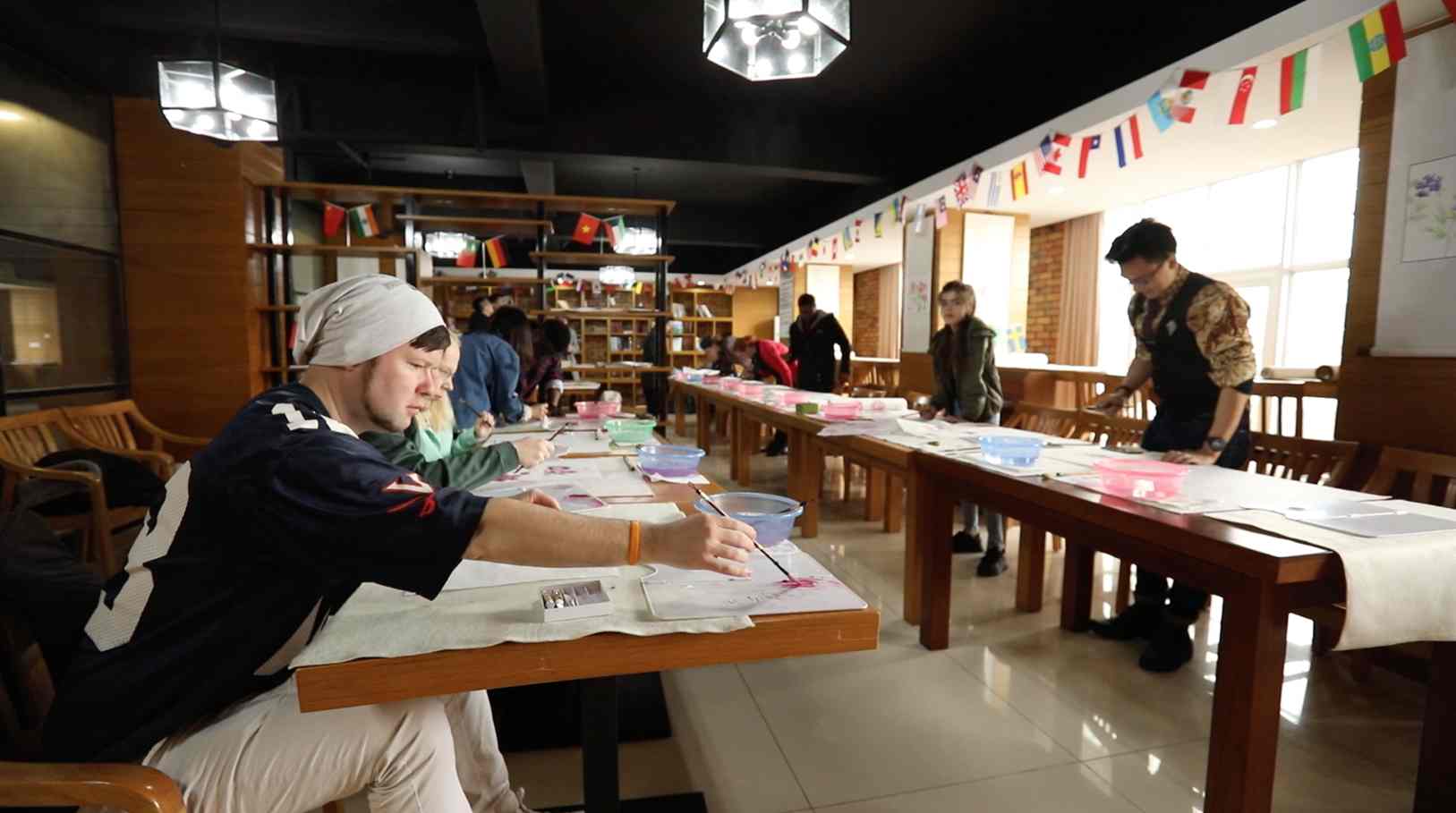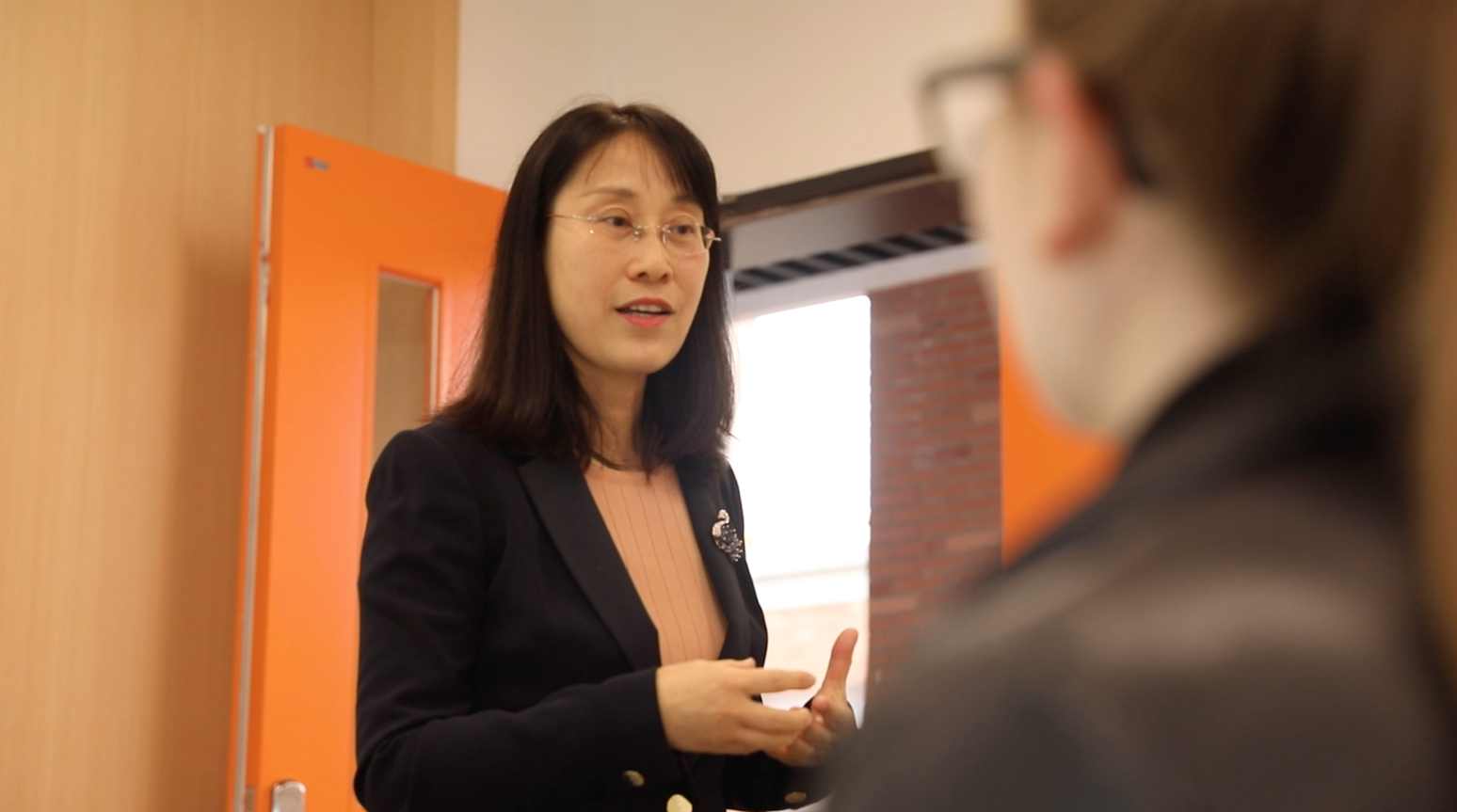
Education
21:54, 12-Apr-2019
Ningbo City deepens two-way international education
Updated
22:58, 12-Apr-2019
By Tang Bo
03:01

Sophie Szoko is in her second year in China, studying Mandarin and getting to know more about Chinese culture.
A foreign student from Hungary at Ningbo University in East China's Zhejiang Province, Sophie can perform traditional Chinese painting skills well.
She says she likes painting back home, so she went for the traditional Chinese painting class right after she started her exchange program at the university.
Szoko is one of over 2,000 foreign students at Ningbo University who are fascinated by traditional Chinese culture.
Like many other overseas pupils, she is still pursuing a master's degree back in her home country.
The two-year exchange in China is a big plus for her graduate studies. And she hopes to put what she's learned in China to practical use.

Foreign students at NingboUniversity in Zhejiang Province are learning traditional Chinese painting. /CGTN Photo
Foreign students at NingboUniversity in Zhejiang Province are learning traditional Chinese painting. /CGTN Photo
Spending two years in Ningbo to learn the Chinese language and get to know the oriental culture for free is a rare opportunity for most Central and Eastern European students, so Sophie is very much the minority. Now, measures have been taken by the city to make Chinese culture accessible to more people in the region.
For two years, Mo Lili has been part of a teacher exchange program between Zhejiang Wanli University and some partner universities in Poland and Slovakia.
As the head of the school's foreign language faculty, she says she used to focus mainly on cross-cultural communication.
But with the increase of China's global influence, she has had to face more in-depth questions about China's economic and social development.
She says it's quite challenging for her as a language teacher. But what she did was, not teach them professional concepts, but tell them what exactly was going on in China. When it comes to China's economic development for example, she introduced China's different economic development phases with different guiding policies.
Mo has also witnessed a rapid growth in cultural exchanges between China, and Central and Eastern European countries.

Mo Lili and her foreign students in a cross-culture communication class at Zhejiang Wanli University. /CGTN Photo
Mo Lili and her foreign students in a cross-culture communication class at Zhejiang Wanli University. /CGTN Photo
She recalls that when she went to teach in Poland the first time, she brought some traditional Chinese scarves as gifts for students who could answer her questions. But she only gave out one scarf. When she went there again the following year, all the scarves she brought were given out.
Over the past year, 35 educational organizations from central and eastern Europe visited Ningbo, and 19 education groups from Ningbo's universities made the exchange visits.
Ningbo Education Bureau has been corresponding with the city's universities to not only bring in advanced college majors and experts, but also to go out and cooperate with overseas schools.
Wang Weimin, deputy director of Ningbo Education Bureau says mutual understanding between the two areas has largely improved by the exchange program, which in turn has laid a solid foundation for improving comprehensive China-Central and Eastern Europe cooperation.
However, the current education cooperation between the two areas has not yet reached the state level. Therefore its influence among top education government officials in the region is limited. That is the small gap Ningbo's education authorities are working to fill.

SITEMAP
Copyright © 2018 CGTN. Beijing ICP prepared NO.16065310-3
Copyright © 2018 CGTN. Beijing ICP prepared NO.16065310-3